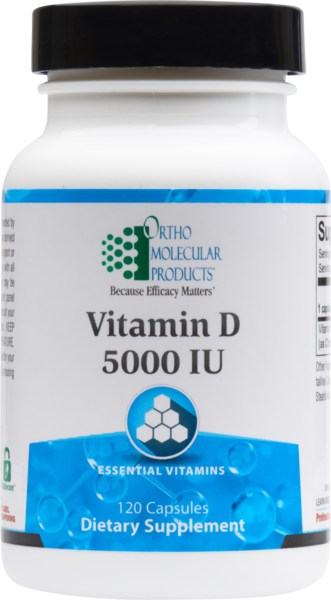With one-third of the United States' adult population considered obese, it's no wonder the US weight loss market is a $60 billion industry.
Fad diets, "miracle" pills and the ultimate workout routine headline everything from our daily news programs to late-night infomercials. But what if part of the solution we're searching for is as simple as a well-known, though often insufficient, fat-soluble vitamin we're all quite familiar with? Research suggests it may be.
Best known for the role it plays in optimizing bone health, research has also shown an inverse correlation between circulating vitamin D levels and body mass index, weight, abdominal fat and subcutaneous fat. A recent study found women with suboptimal vitamin D levels (defined as 20-29ng/ml for this study) to have 40% more subcutaneous fat than women with optimal vitamin D levels. Women with insufficient vitamin D levels (defined as less than 20ng/ml for this study) had 80% more abdominal fat than their optimal counterparts. What has yet to be demonstrated in this relationship is whether lower levels of vitamin D in overweight and obese individuals is due to adipose tissue's ability to sequester and store vitamin D or if vitamin D actually reduces adipose, resulting in higher circulating levels in thinner individuals.
 The correlation between low vitamin D and obesity may aid the success of overweight individuals participating in weight-loss programs. While intending to research bone density and vitamin D level correlation in women, researchers found that baseline vitamin D levels can be used to predict abdominal fat loss. For every 1 ng/ml of vitamin D, women in the study lost ½ pound more weight.
The correlation between low vitamin D and obesity may aid the success of overweight individuals participating in weight-loss programs. While intending to research bone density and vitamin D level correlation in women, researchers found that baseline vitamin D levels can be used to predict abdominal fat loss. For every 1 ng/ml of vitamin D, women in the study lost ½ pound more weight.
Most American women have low or insufficient vitamin D levels ranging from 12-32ng/ml. What can be gleaned from this research is that women on the lower end of these numbers tend to lose almost a pound a week less than those on the higher end. This increased weight loss ability with higher levels of vitamin D may be a result of the vitamin's ability to increase insulin production and sensitivity in addition to compounding factors yet to be identified:
Just this month a large cohort study determined that 25(OH) vitamin D serum levels were highly associated with adiponectin concentrations. Adiponectin is a hormone produced by adipose tissue that is involved with glucose regulation and fatty acid catabolism and low levels of this hormone are considered an independent risk factor for metabolic syndrome. This may just be one of many mechanisms through which vitamin D affects weight control.
Testing vitamin D levels and subsequently implementing supplementation to achieve optimal levels will not only aid you in ensuring favorable bone health, but may have the added value of achieving weight loss goals.
References:
Kremer R, Campbell PP, Reinhardt T, Gilsanz V.. J Clin Endocrinol Metab. 2009. Vitamin D status and its relationship to body fat, final height, and peak bone mass in young women. Jan;94(1):67-73. Epub 2008 Nov 4.
Vaidya A, Williams JS, Forman JP. The Independent Association Between 26 Hydroxyvitamin D and Adiponectin and Its Relation With BMI in Two Large Cohorts: The NHS and the HPFS. Obesity 2011 Jul 14.
National Center of Health Statistics Prevalence of Overweight, Obesity, and Extreme Obesity Among Adults: United States, Trends 1960-1962 Through 2007-2008

